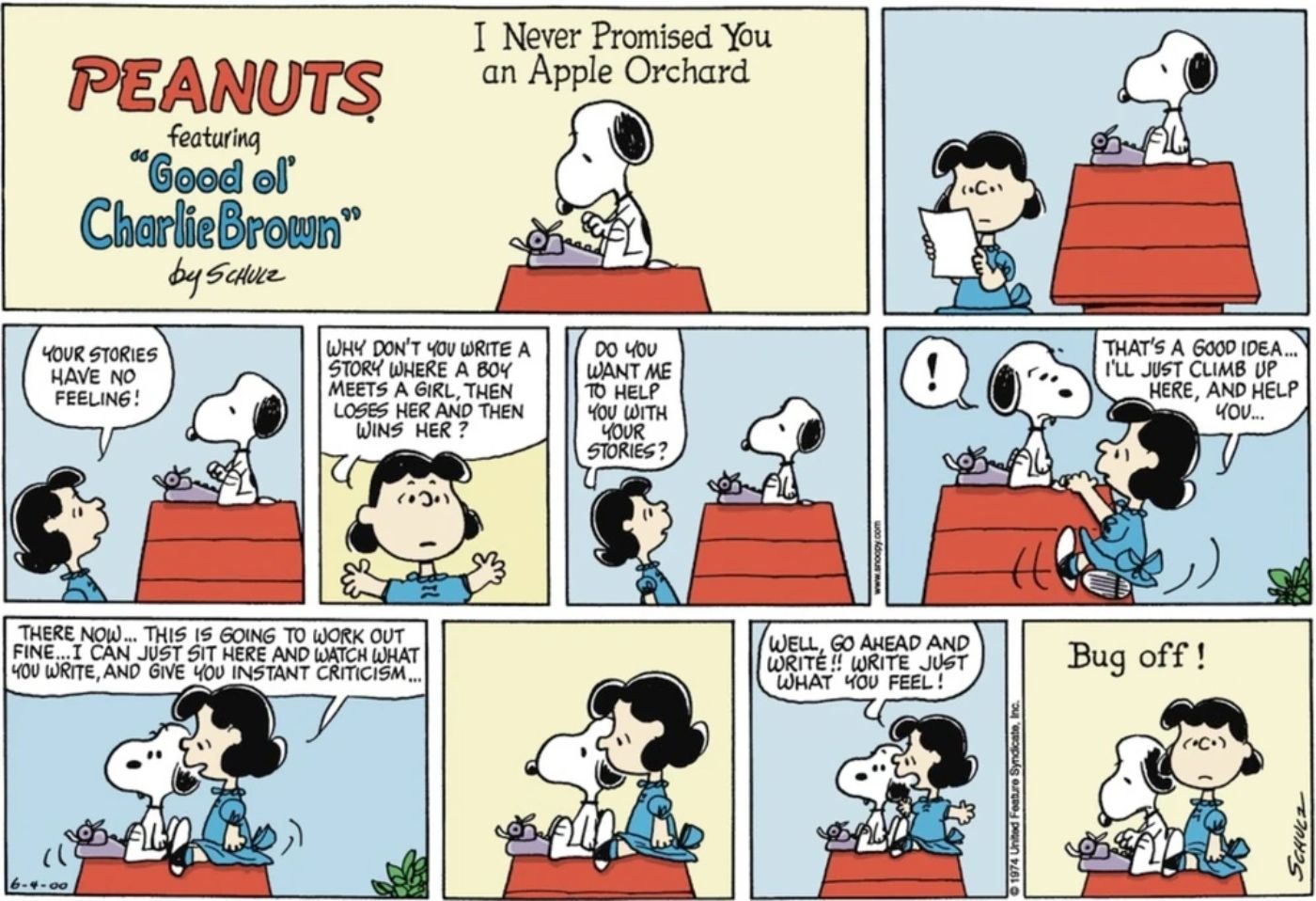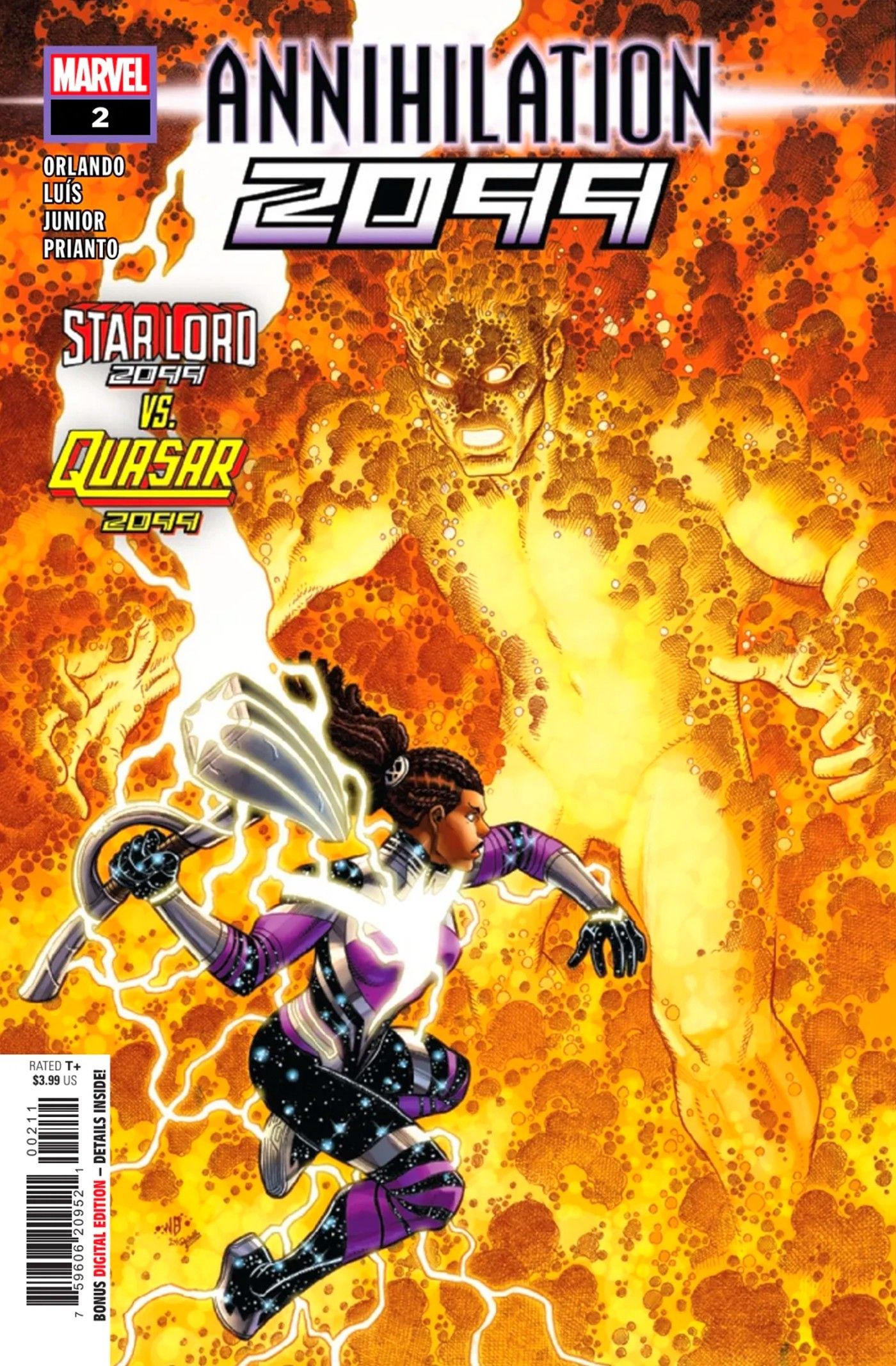At the start of new indie adventure game Re:Call, it’s clear that it’s an experimental piece of narrative. Blending aspects of point-and-click adventures, chaos theory, and visual novel detective games, Re:Call bounces its ingredients around in the bowl while mixing in mile-high plot intricacies and fourth-wall breaks for good measure. Its final chapters compromise its stronger moments, though its fantastic presentation and playful design may outweigh those post-game doubts.
Bruno Gallagher is an overweight, self-deprecating loner who has carried his tormented school upbringing into young adulthood. The shell of his poor self-esteem begins to crack when he encounters a strange presence, something he refers to as a “ghost.” In gameplay terms, Re:Call references the players themselves in multiple ways, but infuses this meta concept with a gameplay quirk where changes in memories affect the present-day.
A prologue shows how recalling an event to an interrogator affords the player the ability to change small but significant details to solve a dangerous situation. For example, a guard’s gun may vanish, or the guard posted at a door might never appear, because of a small nudge in how a character empowered with this “ghost” affected that guard’s schedule. Re:Call takes this mind-warping gameplay mechanic into some interesting, even engrossing puzzles and configurations in the game’s early chapters.
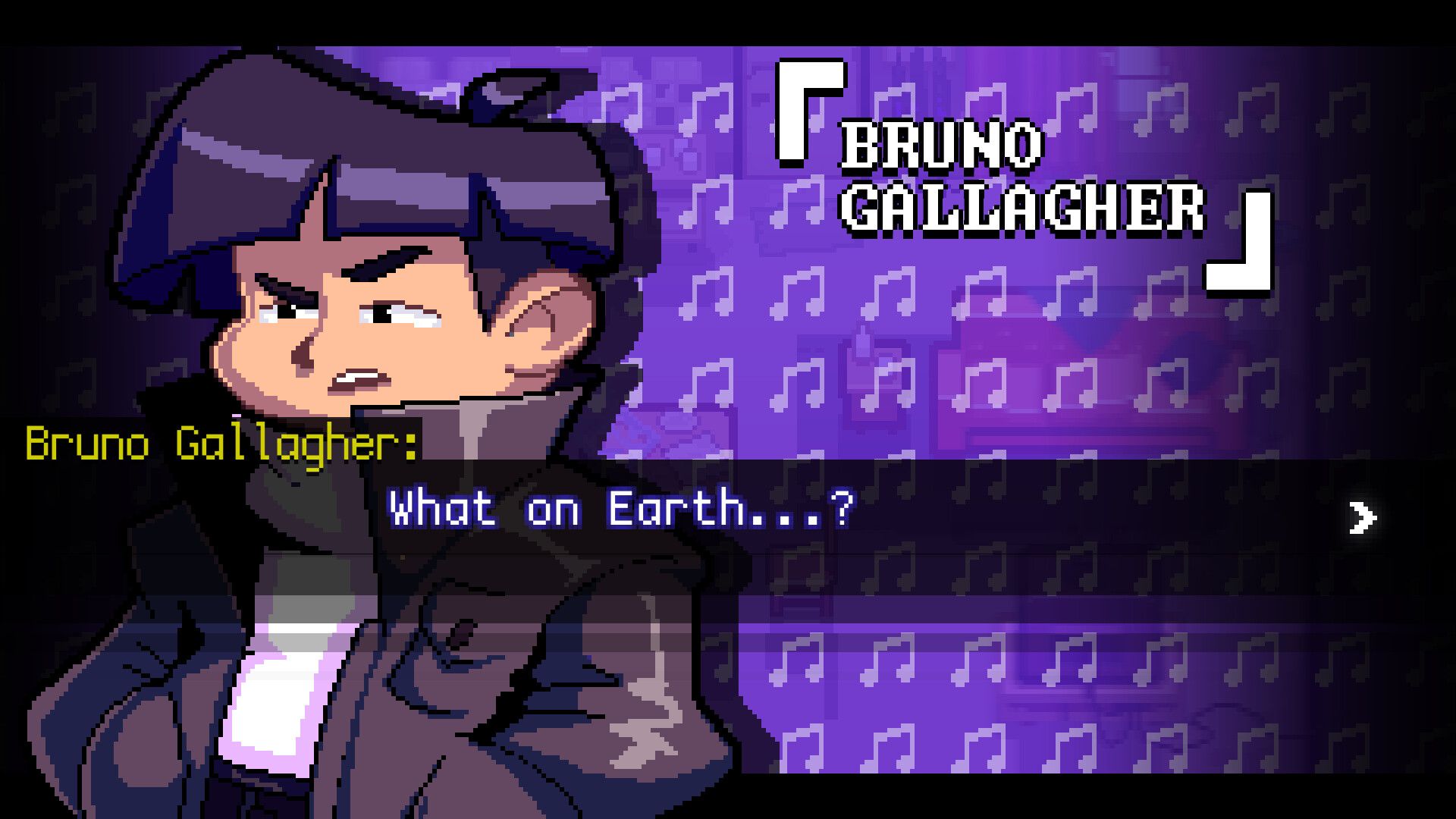
In its finest moments, it’s reminiscent of a plucky and more upbeat Return of the Obra Dinn, in the sense that Re:Call’s best puzzles protect themselves from brute-forcing by offering a variety of different setups to align, with the correct path more a matter of intentionality than pure luck. That’s not to imply that the game is oppressively complicated; quite the contrary, it features numerous limitations on interactive objects and options throughout. However, there tend to be enough variables that the right choices feel earned by paying attention.
While it looks like an old-school JRPG in screenshots, Re:Call is much more in debt to the Shu Takumi school of game design. The Ace Attorney series seems a key inspiration here, along with the lesser-played Ghost Trick: Phantom Detective. Like the former, Re:Call sports an impressive arrangement of large emoting character portraits and a differentiated cast who spur the mystery along, each with their own loud personalities, quirks, and idiosyncrasies.
Helping set the tone is a delightful, relistenable lo-fi gaming soundtrack with a surprising number of different looping tracks, all of which can make scenes feel cozy, dramatic, or doubtful on cue. Animations for the pudgy sprites bop along onscreen and make the usually sparse backdrops in Re:Call seem more lively and detailed, and there’s a hazy scanline effect which defaults to being on, though it can make the screen murky at times.
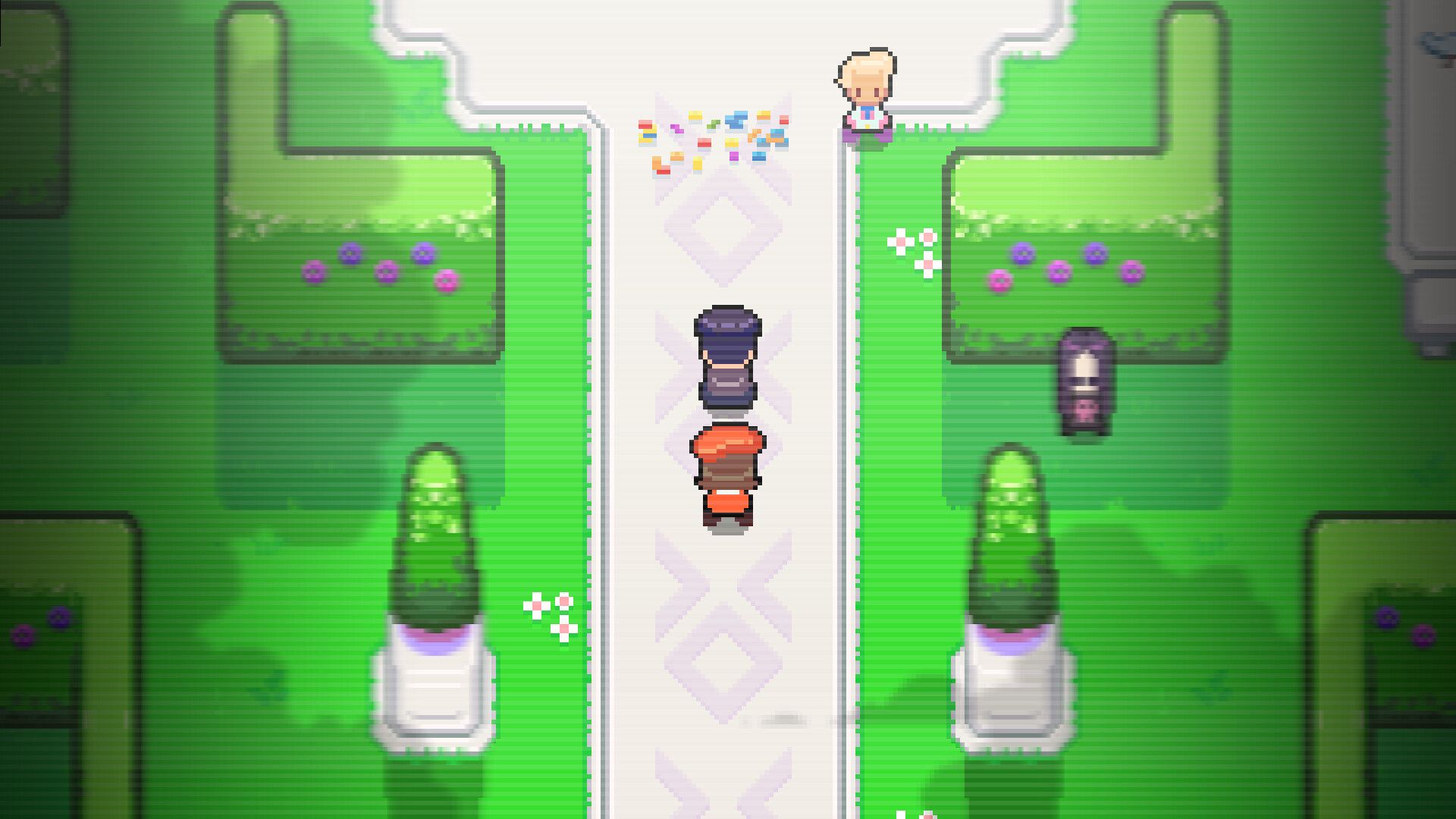
What ultimately compromises this strong production are those eventual swings in the story, as the latter portion of Re:Call drifts meaningfully away from the fun, memory-shifting detective adventure gameplay that energizes the concept in its early scenes. There are extensive, cumbersome puzzle-based sequences in the finale that drag out the ending for no discernible reason, leading to an ending which seems to be cobbled from spare parts, at best.
At the center of the story are some rather affecting takes on feelings of self-worth derived from weight gain and public persecution, and how bullying in younger years can live as deeper traumas on into maturity. It feels genuinely personal, which is a credit to Re:Call’s writing, in spite of the aforementioned climactic scenes.
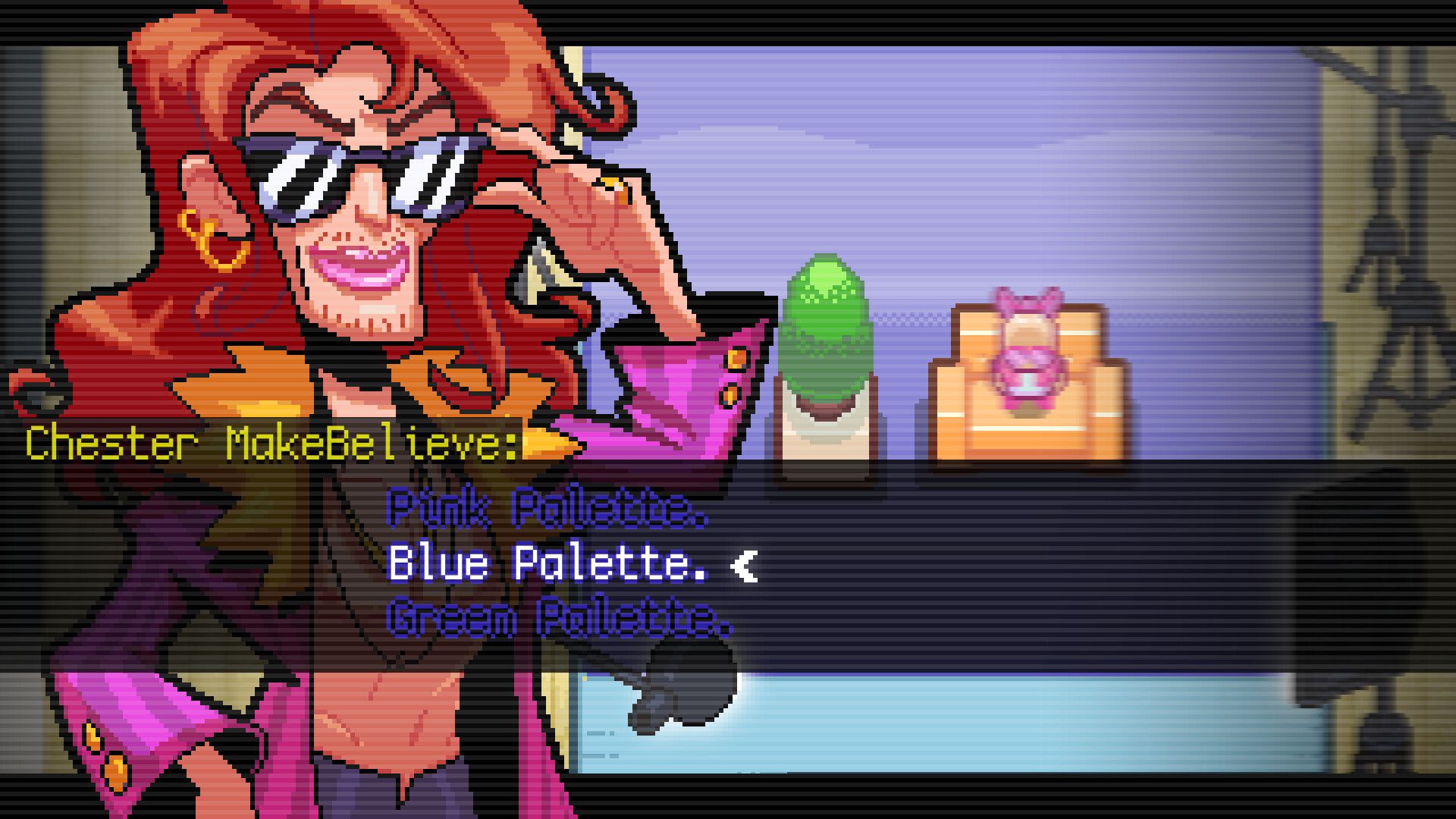
It’s hard not to hold Re:Call’s larger stumbles against it, only because any honest investment in its original ideas and systems fails to come together in a satisfying or rewarding way. Some of its most exciting or unusual puzzles far outclass later sections with rote stealth vision-cone mechanics. Re:Call is worth investigating with a playthrough – just be prepared for a paradigm shift just when things are getting good.
Re:Call releases on January 17 for PC, Nintendo Switch, and Xbox platforms. A digital PC code was provided to Screen Rant for the purpose of this review.


